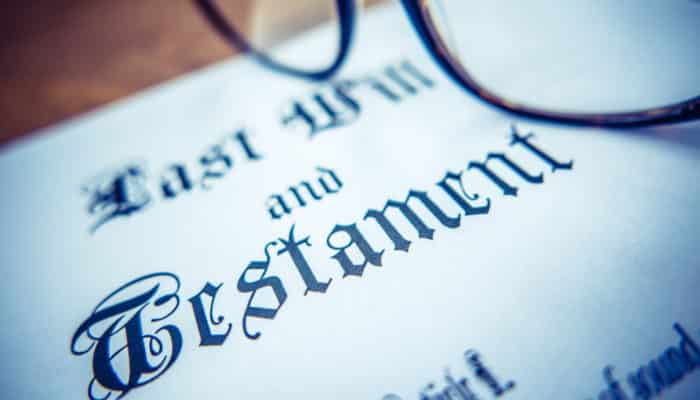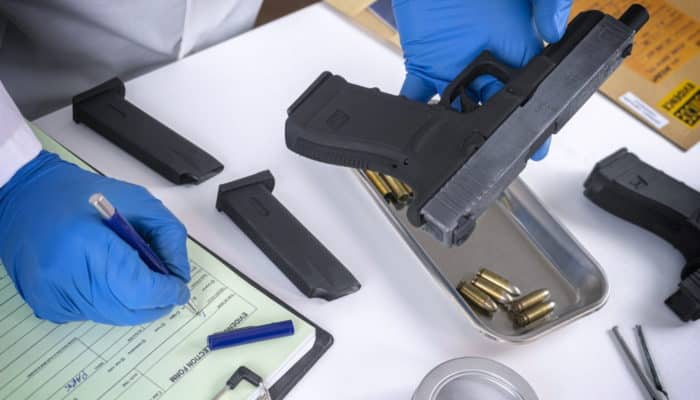Courts in various states follow different legal standards to decide how much a loss of a pet is worth, and whether pet owners are entitled to compensation for their emotional distress.
In the state of Florida, pets are generally considered personal property. Pets belong to a human individual and are the responsibility of that owner. Although one may feel as if their pet deserves the same treatment as a person, that does not mean that they are granted the same legal status as human beings under Florida law.
Bottom of Form
When someone is liable for an injury to one’s pet, that owner may become emotionally devastated and angry. Most owners want to be and believe they should be compensated for their loss. If it is only a matter of a veterinarian’s bill to treat the injury, the amount of that loss should be relatively easy to calculate. HOWEVER, what would be fair compensation if one’s pet died, or the owner or family member had to watch it suffer? While most Americans treat their companion animals like members of the family, the law generally treats them like personal property. The rules or laws vary from state to state when people sue over a pet’s injury or death. Courts in most states limit the compensation to the owner’s economic losses. In cases involving deliberate or malicious wrongdoing, some states allow courts to award compensation for the owner’s emotional suffering or extra money as a form of punishment.
When a dog or cat or other pet has been hurt, the first expense is usually for veterinary/medical care. The person responsible for the injury will probably be liable for those bills. Courts usually allow compensation only for “reasonable” treatment. The question of what is reasonable depends on several factors, including the extent of the injuries and the animal’s age and general condition.
If the veterinary bills were particularly high for an older pet, some judges may find that the owner is entitled to no more than the amount of the animal’s fair market value. On the contrary, many courts have rejected that approach. For example, a Kansas court found that owners of a 13 year old dog were entitled to reimbursement for reasonable veterinary treatment needed to get their pet back to health. Another Illinois court explained that the owners of a 7 year old dachshund had shown how much their pet was of value to them by paying nearly $5,000 in medical bills after a neighbor’s Siberian husky mauled it. Accordingly, they were entitled to compensation for the full amount of the bills rather than only the dachshund’s $200 market value.
Whenever a pet has been injured, keep records of all bills for treatment, medication, and hospitalization to use during negotiations or at trial. An owner probably will not be paid back for the time they took off from work to care for the dog or take it to the veterinarian, but it cannot hurt to keep a record of that time if it has been extensive.
There are three different ways that courts generally measure an animal’s economic value: fair market value, replacement value, or the special value to the owner.
- Like any other property, the fair market value of a pet is the amount that it would bring if it were sold on the open market. A few of the factors that go into calculating the market value of an animal include its purchase price, age, health, breed, and pedigree.
- Some courts award pet owners what it would cost to replace the animals. The replacement value is probably higher than the market value because it can include things like training and accomplishments (such as winning awards at shows).
- Periodically, an animal’s market or replacement value cannot be determined or does not reflect its true economic value based on its special services or usefulness to the owner. For example, in a case involving a prize-winning pedigreed dog, the court found that the animal’s value to its owner was $5,000, largely because the owner had spent a great deal of time and effort to give the dog specialized and rigorous training. The owner simply would not be able to find another dog like it on the open market. The court also considered the owner’s lost earnings from stud fees.
Because dogs or other animals kept for breeding are essentially business assets, their monetary value may include the lost potential revenue. However, judges may still stick to the replacement-value standard, reasoning that the owner can get another animal that will generate the same income.
Special value to the owner can be particularly relevant in cases involving assistance animals, which require extensive specialized training and become more useful to their owners the longer they work with them. Laws in a number of states specifically entitle the owner to collect extra penalties from the person responsible for killing or hurting a service animal, as well as reimbursement for the replacement cost and other expenses needed while doing without the animal’s assistance.
For most pet owners, whose pets do not win prizes or collect stud fees, the real value of their companion animals cannot be measured by what someone else would pay or what it would cost to buy a replacement. Lawmakers in several states have begun to recognize this fact. In Tennessee, pet owners may recover non-economic damages (up to $5,000 in 2017) as compensation for the loss of “companionship, love and affection” in certain cases when their pets have been killed intentionally (and illegally) or through negligence. Further, a few courts have found that sentimental value could be one element in an animal’s actual value to the owner if it does not have a meaningful market value. However, when judges recognize the sentimental value of pets, it is usually in the context of compensating the owner for out-of-pocket treatment costs that exceeded the pet’s market value.
To date, courts in most states, including Florida, follow the traditional view that owners are not entitled to recover non-economic losses for sentimental value or lost companionship when their pets are killed through negligence.
Some owners try to circumvent the limitations on compensation for the value of a pet by suing those responsible parties for their pet’s loss for the mental suffering the owners experienced. Whether they can be successful depends in part in which state they reside and the nature of the actions that led to pet’s injury or death.
Courts in most states do not allow claims for emotional distress when those responsible were simply negligent . A damaged pet owner may have more success when the responsible party acted maliciously or meant to make the owner suffer, i.e., what is known as “intentional infliction of emotional distress”. In a particularly egregious case, a Washington appellate court found that a cat’s owner was entitled to $5,000 for the sleeplessness, depression, and other emotional distress that was experienced after three boys maliciously set the cat on fire.
Generally, pet owners can sue for two types of mental distress: first, the shock and distress caused by seeing an accident or mistreatment, and second, the grief and long-term effect the loss has on their lives. The more outrageous the conduct of the person being sued, the more likely the court is to award compensation for emotional distress, and the larger the award is likely to be. Proving mental suffering is not easy. Pet owners, however, can testify about how they felt when their pets were killed and how the loss disrupted their lives. If they sought medical treatment or psychological counseling, then it may strengthen the claims.
When a court orders someone who injured or killed a pet to pay the owner, that money is intended to compensate for the economic and, at times, emotional loss. In some states, courts may also award “punitive damages” intended to punish the wrongdoers for outrageous or deliberate actions. For example, California law specifically allows these types of awards, which are known in that state as “exemplary” damages”, for injuries to animals “committed willfully or by gross negligence” pursuant that state’s statute.
Punitive damages may be especially appropriate in animal cases, where compensation is likely to be low. A Minnesota court explained in a particular case that if compensatory damages do not make it worthwhile to sue, the wrongdoing will go unpunished unless there are punitive damages assessed.
If asked, most owners would likely say their pet’s value is “priceless.” In fact, a study by Kelton Research found that 81% of those surveyed consider their dogs, and other types of pets, to be true family members, on a par with their children. The death of a pet can be devastating to the human companion/owner, especially if the death is the result of a negligent or intentional act. In the legal world, however, a pet’s worth has been, for the most part, limited.
Historically, the recovery for the death of a companion animal has been limited to a loss of property claim with damages calculated by the fair market value of the animal. For those of us with mixed breeds or older pets, which would mean they are literally worth nothing.
This area of law is changing, however. A few courts have allowed juries to base a pet’s economic worth on other factors, such as special training, original purchase price, and cost to replace. These damages are known as “actual” or “intrinsic” damages.
In one case., the plaintiffs/owners sued their veterinarian and animal hospital, alleging the defendants (responsible parties) negligently administered anesthesia during a diagnostic treatment which resulted in the death of their pet German Shepard. The plaintiffs complained that because of the defendants’ negligence, they were deprived of the companionship, loyalty, security, and friendship of their dog. The trial court dismissed the case, ruling the law did not allow a pet owner to recover for loss of companionship. On appeal, the court agreed with that ruling, stating that pets are an item of personal property. However, the court also recognized that some items of personal property have no market value, such as pets, heirlooms, photographs, and trophies. The court held that where an object which has no value is destroyed, the measure of damages to be applied is the value to the owner.
Other state courts have recognized the sentimental value of pets to their owners. In LaPorte v. Associated Independents, Inc., 163 So. 2d 267 (Fla. 1964), the Florida Supreme Court upheld a $1000 punitive damage award to the owner of Heidi, a miniature dachshund who was killed when a garbage collector, maliciously, and with extreme and utter indifference threw a garbage can at her. The court held that the affection of an owner for their dog is a very real thing, and that the malicious destruction of a pet should allow for recovery of damages beyond the value of the animal.
However, a Florida appeals court has refused to expand the law to allow emotional distress damages in a veterinary malpractice case where there was “no impact.” The impact rule requires some form of physical impact prior to recovery of emotional distress damages. In Kennedy v. Byas, 867 So. 2d 1195 (Fla. 1st DCA 2004), the owner of a basset hound sought emotional damages for veterinary malpractice in the treatment of his dog. The appeals court refused to allow the damages, stating that it would not abandon the impact rule and allow emotional damages in veterinary malpractice cases. It cited some earlier contrary decisions but ruled otherwise, i.e., Johnson v. Wander, 592 So. 2d 1225 (Fla. 3d DCA 1992), which was a veterinary malpractice case where, as in the foregoing case, the trial court entered a partial summary judgment on the claims for damages for emotional distress and subsequently granted a motion to change the case from circuit court to county court due to the lower jurisdictional amount sought in the claims remaining. In that case, the Third District held that a jury question was presented on the issues of gross negligence and mental pain and suffering as claimed by the dog’s owner and the trial court improperly transferred the case to county court as being a claim for less than the circuit court jurisdictional amount. In Knowles Animal Hosp., Inc. v. Wills, 360 So. 2d 37 (Fla. 3d DCA 1978), the Third District specifically held that a dog owner was entitled to collect for emotional damages in a veterinary malpractice case.
Many state courts have been reluctant to allow non-economic damages.
The courts have instead deferred to their respective legislatures to step in and enact laws on damages in pet cases. Tennessee as the first such state to enact legislation. Known as the T-Bo Act, the Tennessee legislation allows for non-economic damages for the negligent, intentional, or unlawful act of another or animal of another. It limits recovery to cases involving cats or dogs and the cap on damages is $5000.
An Illinois’s statute limits claims for cases in which the defendant subjected the animal to aggravated cruelty or torture or engaged in bad faith which led to the animal’s death or injury. The law applies to any animal to which the plaintiff has a right to ownership, not just cats and dogs. Therefore, a horse owner would have an avenue of recovery. However, damages are limited to $25,000 for each act of cruelty. Attorney’s fees and costs can be recovered under the statute.
Connecticut then followed suit with its own statute, but it is much more limited as to recovery. It only allows recovery in situations where the act was intentional and is limited to cats and dogs. The statute does not allow for emotional damages for owners, but instead names types of economic damages that may be recovered and allows for punitive damages. Attorney’s fees are allowed for a prevailing human companion.
Other states have followed with their own legislation. California and Montana have enacted statutes which allow for exemplary damages in cases of willful or gross negligence. Maryland allows for compensatory damages in cases where the defendant tortuously causes death or injury to a pet. The damages are limited to $7,500.
A court decision exists in Florida, in a divorce context, where a court addressed the issue of pets in divorce. In the case of Bennett v. Bennett, 655 So. 2d 109 (Fla. 1st DCA 1995), the First District Court of Appeal defined the family pet as personal property and rejected a trial court’s order that provided post-divorce visitation for the parties’ dog, including a weekend visitation schedule and every other Christmas holiday. Consequently, the court recognized that post-divorce custody and visitation issues would lead to continuing enforcement issues. Although the court recognized that some other states have provided pets with special status in divorce proceedings, the Florida court declined to extend such protections to Florida pets. In refusing to provide any special considerations or status to pets in divorce, the court also recognized the substantial burdens placed on the Florida court system associated with post-divorce enforcement of child support and visitation matters in regular human custody cases. Accordingly, the subject pet’s fate was dictated by an application of equitable distribution principles that defined its existence as personal property, affording no special consideration of the pet’s interests. While the trial court was trying to reach a fair solution under difficult circumstances, the appellate court made clear that pets are animals not subject to a best interest analysis and that their fate must be resolved by following the dictates of Florida’s equitable distribution formula. The personal property calculation taken in conjunction with the court’s rejection of a pet’s “special status” in a divorce would appear to limit the trial court’s authority to take noneconomic valuation testimony about potential harm or abuse to the said pet. The lack of other reported court decisions in Florida makes it difficult to discern the court’s intent in Bennett beyond the prohibition of pet visitation awards.
Bills have been introduced in many other states over the years but have had little success. Legislators appear to be reluctant to change the status of pets as property and potentially open the flood gates for more litigation in both the national and state court systems.
If you or your pet have been injured because of the negligence or malice of others or have any questions regarding the foregoing or want to discuss any other legal issue or concern, please contact the law firm of CASERTA & SPIRITI in Miami Lakes, Florida.





